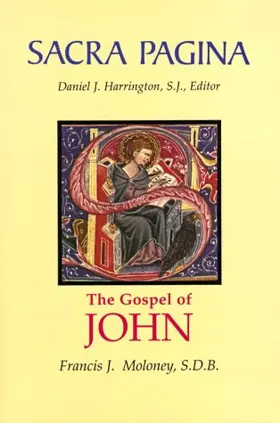

The Gospel of John
in Sacra Pagina
Pages
594 pages
Publisher
Liturgical Press
Published
3/1/1998
ISBN-13
9780814658062
Collections
This book appears in the following featured collections.
- New Testament Commentaries & Monographs by Princeton Theological Seminary
- Commentaries by Roman Catholic Scholars by John Dyer
Reviews
Moloney is Salesian scholar with a specialty in the Gospel books. The SP series is strong on reading the text without venturing in commenting on secondary source discussions (commentary on commentaries). Provides textual notes which translation, text critical, intertextual points, and an interpretation of the pericope as a whole (similar to Anchor, but much easier to read without the parenthetical notations). Greek words appear transliterated. Overall, this is among the best semi-technical commentaries on John I've used. Though it's definitely Roman Catholic in orientation (esp important in John 6), it still an outstanding commentary for a broad audience.
Francis Moloney is a John expert and Catholic priest who currently teaches at Catholic Theological College in East Melbourne, Australia.
This commentary is the fruit of many years of research and reflection on the fourth Gospel. I greatly enjoy using it and definitely recommend it to others because of Father Moloney's careful attentiveness to the narrative of John. He helps the reader of John see the powerful Gospel for what it is: a unified story that has been written "that you may believe that Jesus is the Christ, the Son of God, and that by believing you may have life in His name" (20:31).
Moloney's commentary is also technically informed without being bogged down by lots of other scholars' opinions. Each section deals with a pericope in a holistic way, relating the theology and narrative developments back to the whole story in John, and only after that does Moloney look at textual issues in the final verse-by-verse portion of the pericope section. This technical portion often refers the reader to other scholars' writings without long quotations that would detract from the flow of the narrative. Moloney looks at the opinions of Brown, Barrett, and Schnackenburg frequently. As a Lutheran, I greatly appreciate Moloney's words on John 6 about the miraculous and real presence of Christ in the Eucharist. Throughout this commentary Moloney allows his sacramental, Catholic views come out without compromising his excellent scholarship. Overall this is a very fine commentary.

